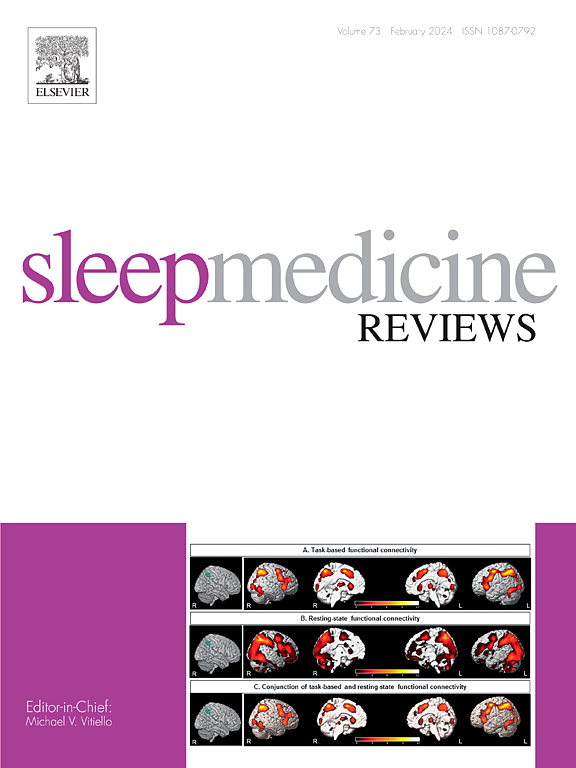失眠症认知行为自助疗法范围综述。
IF 11.2
1区 医学
Q1 CLINICAL NEUROLOGY
引用次数: 0
摘要
作为慢性失眠症的一线疗法,失眠认知行为疗法(CBTI)的使用率一直受到训练有素的治疗师短缺、使用障碍以及对自助替代疗法认识有限等因素的限制。自助式 CBTI 已成为一种实用的替代疗法,它具有随时可用、方便、传播和可扩展性强等优点。然而,对有限数据的证据综合表明,其有效性和可接受性可能不如面对面的 CBTI,还有人质疑其是否符合 CBTI 标准。我们对自助式 CBTI 研究进行了范围界定,重点关注其核心内容、交付方法、教练支持的使用和发展。我们的综述包括 145 项独特研究的 174 份报告,其中 106 项为随机试验,65 项自 2020 年以来发表。研究结果表明,自助式 CBTI 保持了传统 CBTI 的基本核心内容(卧床时间限制、刺激控制、放松技巧、认知疗法和睡眠卫生/教育)和结构,其中许多(但不是全部)包括不同类型和形式的辅导支持。越来越多的证据表明,自助式 CBTI 是一个不断发展的领域,值得进一步分析,以确定其在填补慢性失眠治疗空白方面的作用。本文章由计算机程序翻译,如有差异,请以英文原文为准。
A scoping review of self-help cognitive behavioural therapy for insomnia
Uptake of cognitive behavioural therapy for insomnia (CBTI) as first-line therapy of chronic insomnia has been restricted by a shortage of trained therapists, access barriers, and limited awareness of self-help alternatives. Self-help CBTI has emerged as a practical alternative, offering ready access, convenience, and dissemination and scalability efficiency. Yet, evidence syntheses of limited data have suggested its effectiveness and acceptability may be inferior to face-to-face CBTI and others have questioned its fidelity with CBTI standards. We conducted a scoping review to map and characterize self-help CBTI research, focusing on its core components, delivery methods, use of coaching support, and growth. Our review included 174 reports of 145 unique studies, 106 of which were randomized trials, with 65 published since 2020. Findings revealed that self-help CBTI maintained the essential core components (time-in-bed restriction, stimulus control, relaxation techniques, cognitive therapy, and sleep hygiene/education) and structure of conventional CBTI with many, but not all, including different types and formats of coaching support. The expanding body of evidence suggests that self-help CBTI is an evolving field, warranting further analysis to delineate its role in filling the treatment gap for chronic insomnia.
求助全文
通过发布文献求助,成功后即可免费获取论文全文。
去求助
来源期刊

Sleep Medicine Reviews
医学-临床神经学
CiteScore
20.10
自引率
3.80%
发文量
107
期刊介绍:
Sleep Medicine Reviews offers global coverage of sleep disorders, exploring their origins, diagnosis, treatment, and implications for related conditions at both individual and public health levels.
Articles comprehensively review clinical information from peer-reviewed journals across various disciplines in sleep medicine, encompassing pulmonology, psychiatry, psychology, physiology, otolaryngology, pediatrics, geriatrics, cardiology, dentistry, nursing, neurology, and general medicine.
The journal features narrative reviews, systematic reviews, and editorials addressing areas of controversy, debate, and future research within the field.
 求助内容:
求助内容: 应助结果提醒方式:
应助结果提醒方式:


